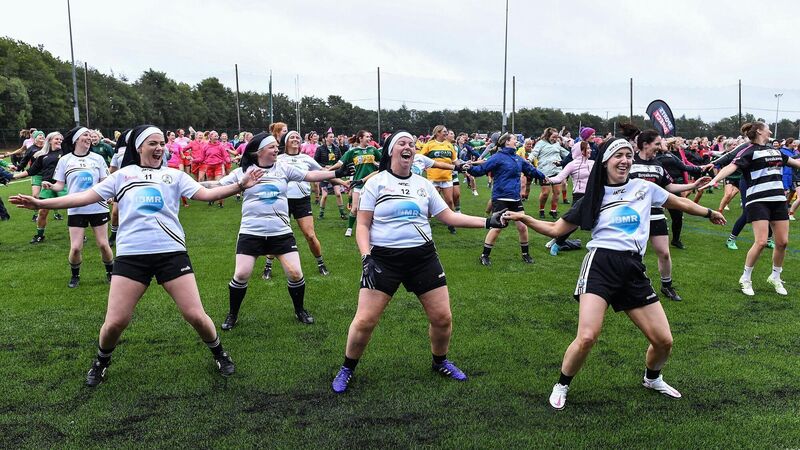Eimear Ryan: Sport enriches our lives and it's not only for the young

INCLUSION: Aghadrumsee St Macartans of Tyrone during the warm-up before the Sports Direct Gaelic4Mothers&Others National Blitz day, hosted by the Naomh Mearnóg & St Sylvester’s GAA clubs in Dublin. Pic: Piaras Ó Mídheach/Sportsfile
Last month, the ran a striking and moving photo essay about a women’s soccer tournament held in Chattanooga, Tennessee. Adult Soccer Fest, as it’s called, caters for multiple age groups, with teams ranging from 30+ to 70+. One of the photos shows two women with lined faces and silver ponytails contesting for the ball: not your typical soccer players, but kinetic and competitive all the same.
But these players aren’t trying to relive their glory days: in many cases they’re playing for the first time, having been denied the opportunity to play team sport when they were young.









